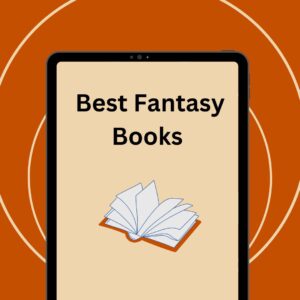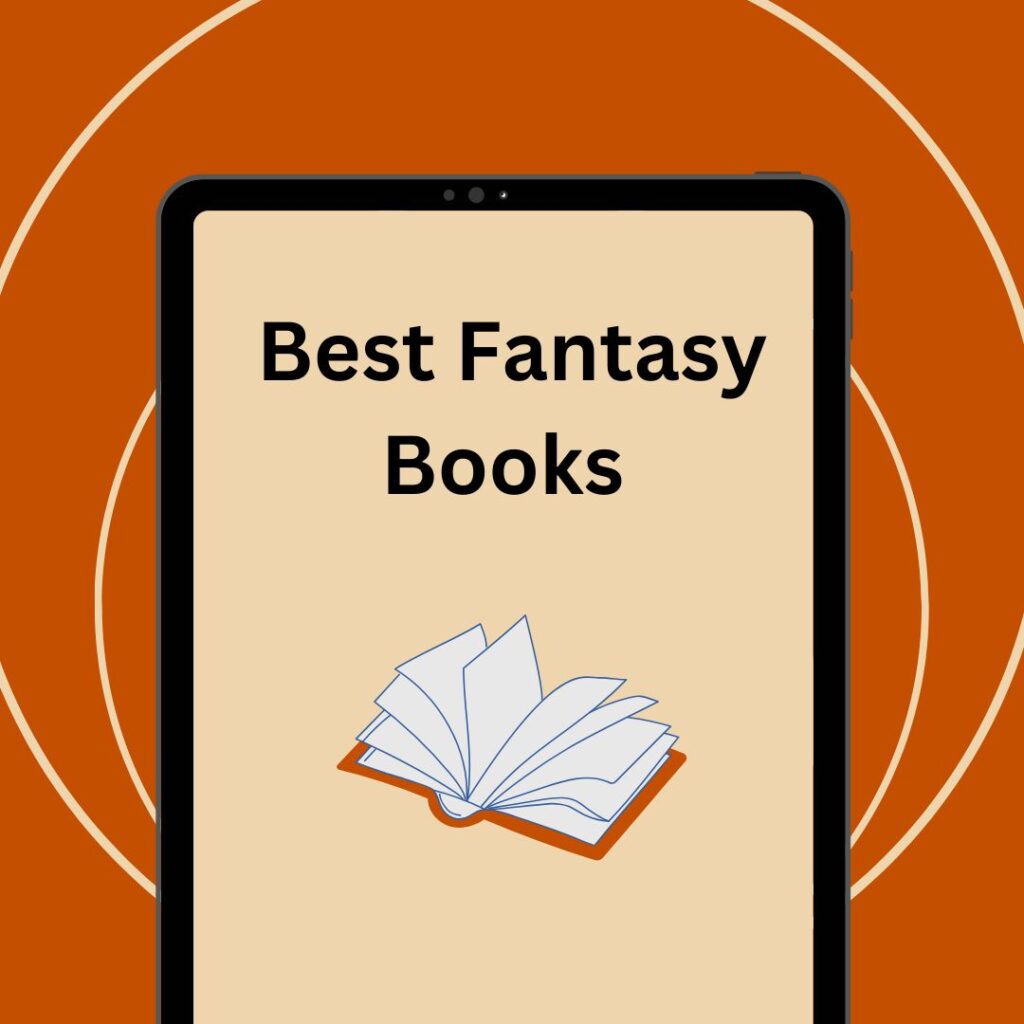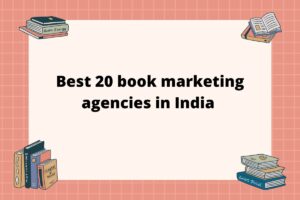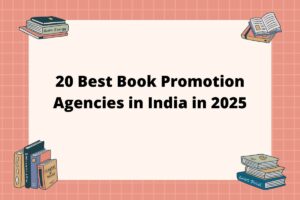Best Fantasy Books
Fantasy literature transports readers to magical realms filled with mythical creatures, epic quests, and extraordinary adventures. This genre captivates the imagination, allowing readers to escape reality and explore worlds where anything is possible. In this comprehensive guide, we will delve into some of the best fantasy books, each accompanied by a brief summary that captures its essence. Whether you’re a seasoned fantasy reader or new to the genre, these selections promise to enchant and inspire.

Table of Contents
1. The Lord of the Rings by J.R.R. Tolkien
This epic high fantasy trilogy follows the journey of Frodo Baggins as he embarks on a quest to destroy the One Ring, a powerful artifact sought by the Dark Lord Sauron. Alongside a fellowship of diverse characters, including Aragorn, Legolas, and Gandalf, Frodo faces numerous challenges in the land of Middle-earth.
Key Themes:
- Good vs. Evil: The struggle between light and darkness is central to the narrative.
- Friendship and Sacrifice: The bonds formed among the fellowship highlight themes of loyalty.
- Heroism: Ordinary characters rise to extraordinary challenges.
Tolkien’s work is a cornerstone of fantasy literature, influencing countless authors and adaptations.
2. A Song of Ice and Fire by George R.R. Martin
Beginning with A Game of Thrones, this series unfolds in the Seven Kingdoms of Westeros, where noble families vie for power amidst political intrigue and warfare. As winter approaches, ancient threats from beyond the Wall loom large.
Key Themes:
- Political Intrigue: The series intricately weaves plots involving betrayal and alliances.
- Morality and Consequences: Characters face complex moral dilemmas that shape their fates.
- Realism in Fantasy: Martin’s gritty portrayal of life in a medieval setting adds depth.
This series has garnered immense popularity, inspiring the acclaimed HBO adaptation, Game of Thrones.
3. Harry Potter Series by J.K. Rowling
This beloved series follows young wizard Harry Potter as he discovers his magical heritage and attends Hogwarts School of Witchcraft and Wizardry. Alongside friends Hermione Granger and Ron Weasley, Harry confronts dark forces led by the dark wizard Voldemort.
Key Themes:
- Friendship and Loyalty: The trio’s bond is central to their adventures.
- Courage and Sacrifice: Characters demonstrate bravery in the face of danger.
- Coming-of-Age: Harry’s journey reflects themes of growth and self-discovery.
Rowling’s enchanting world has captivated readers of all ages, solidifying its place in literary history.
4. The Name of the Wind by Patrick Rothfuss
This novel follows Kvothe, a gifted young man who grows up to become a legendary figure known for his prowess in magic and music. As he recounts his life story to a chronicler, readers learn about his struggles, triumphs, and the mysteries surrounding his past.
Key Themes:
- Storytelling as Power: The narrative emphasizes the importance of stories in shaping identity.
- The Quest for Knowledge: Kvothe’s journey reflects a deep thirst for understanding.
- Love and Loss: Romantic relationships play a significant role in Kvothe’s development.
Rothfuss’s lyrical prose and intricate world-building have earned this book critical acclaim.
5. Mistborn Trilogy by Brandon Sanderson
Beginning with Mistborn: The Final Empire, this series introduces a world where ash falls from the sky and mist dominates the night. Vin, a street urchin with latent powers, discovers her abilities as an Allomancer and joins a rebellion against an oppressive regime ruled by the immortal Lord Ruler.
Key Themes:
- Rebellion Against Oppression: The struggle for freedom drives the plot.
- Complex Magic System: Sanderson’s unique approach to magic adds depth to the narrative.
- Redemption Arc: Characters grapple with their pasts while seeking redemption.
Sanderson’s innovative storytelling has solidified his reputation as a master of modern fantasy.
6. The Night Circus by Erin Morgenstern
This enchanting novel revolves around a mysterious circus that appears without warning and operates only at night. At its heart lies a competition between two young illusionists, Celia and Marco, bound by magical forces beyond their control.
Key Themes:
- Love vs. Competition: The relationship between Celia and Marco complicates their rivalry.
- The Power of Imagination: The circus serves as a canvas for creativity and wonder.
- Fate vs. Free Will: Characters wrestle with their destinies throughout the narrative.
Morgenstern’s lyrical writing creates a mesmerizing atmosphere that lingers long after reading.
7. American Gods by Neil Gaiman
Shadow Moon is released from prison just before learning about his wife’s death. He becomes embroiled in a conflict between old gods and new deities as he travels across America with Mr. Wednesday, an enigmatic figure who reveals hidden truths about Shadow’s past.
Key Themes:
- Cultural Commentary: Explores themes of belief, identity, and American culture.
- Mythology Reimagined: Gaiman blends various mythologies into modern settings.
- Existential Questions: Characters grapple with purpose and faith.
Gaiman’s inventive storytelling has made this novel a modern classic in fantasy literature.
8. The Broken Earth Trilogy by N.K. Jemisin
Starting with The Fifth Season, this award-winning trilogy takes place in a world plagued by catastrophic climate changes known as “Seasons.” It follows Essun, a woman searching for her daughter amidst societal oppression against those with earth-manipulating abilities called orogenes.
Key Themes
- Oppression and Resistance: Explores themes of systemic injustice through fantastical elements.
- Complex World-Building: Jemisin creates an intricate society with rich cultural dynamics.
- Identity: Characters navigate personal struggles while confronting societal expectations.
Jemisin’s groundbreaking work has received critical acclaim for its depth and originality.
9. The Wheel of Time Series by Robert Jordan
Beginning with The Eye of the World, this epic fantasy series spans fourteen books that follow Rand al’Thor as he discovers his destiny as the Dragon Reborn—a savior destined to confront the Dark One.
Key Themes
- Epic Scope: Explores vast landscapes with intricate lore spanning multiple cultures.
- Fate vs. Free Will: Characters grapple with their roles in prophecies.
- Friendship: Strong bonds between characters drive emotional arcs throughout the series.
Jordan’s richly detailed world has captivated fans for decades, making it one of fantasy’s most beloved series.
10. Good Omens by Neil Gaiman and Terry Pratchett
This comedic novel follows an angel (Aziraphale) and a demon (Crowley) who team up to prevent Armageddon after realizing they have grown fond of Earth. As they search for the Antichrist—a misplaced child—they encounter various quirky characters along the way.
Key Themes
- Good vs. Evil: Explores moral ambiguity through humor.
- Friendship Across Boundaries: Highlights unlikely alliances between opposing forces.
- Satire: Offers witty commentary on religion, humanity, and societal norms.
Gaiman and Pratchett’s collaboration results in an entertaining blend of humor and fantasy.
11. The Priory of the Orange Tree by Samantha Shannon
This standalone epic fantasy novel follows the story of Ead Duryan, a lady-in-waiting to the queen of Inys, who harbors a secret: she is a mage from the East. As tensions rise between the East and West and an ancient dragon awakens, Ead must navigate her loyalties while protecting her realm.
Key Themes:
- Diversity and Representation: Features a rich tapestry of characters, including LGBTQ+ representation.
- Feminism and Empowerment: Strong female characters challenge traditional gender roles.
- Political Intrigue: Explores themes of power, loyalty, and betrayal.
Shannon’s lush prose and intricate world-building make this a standout in modern fantasy.
12. The Magicians by Lev Grossman
Quentin Coldwater discovers that the magical land he read about in his childhood books is real. He enrolls in Brakebills, a secret school for magicians, but soon learns that magic comes with its own set of challenges and dark consequences.
Key Themes:
- Coming-of-Age: Explores the struggles of adulthood and self-discovery.
- Reality vs. Fantasy: Questions the allure of escapism through magic.
- Friendship and Betrayal: Examines complex relationships among characters.
Grossman’s series offers a darker, more adult take on the fantasy genre.
13. The Golem and the Jinni by Helene Wecker
Set in early 20th-century New York City, this novel intertwines the stories of Chava, a golem created from clay, and Ahmad, a jinni made of fire. They confront their identities and destinies as they navigate their new lives among humans.
Key Themes:
- Cultural Identity: Explores themes of immigration and belonging.
- Friendship Across Differences: Highlights connections between disparate beings.
- Mythology and Folklore: Weaves elements from Jewish and Arab folklore into the narrative.
Wecker’s debut is a beautifully crafted tale that blends history with magical realism.
14. The Dark Tower Series by Stephen King
Beginning with The Gunslinger, this series follows Roland Deschain, the last gunslinger, on his quest to reach the Dark Tower, a mythical structure that holds the universe together. As he travels through various worlds, he encounters friends and foes alike.
Key Themes
- Quest for Redemption: Roland’s journey reflects themes of sacrifice and obsession.
- Interconnected Worlds: Blends elements of fantasy, horror, and Western genres.
- Fate vs. Free Will: Explores complex moral choices throughout Roland’s adventures.
King’s ambitious series is both an epic saga and a meditation on storytelling itself.
15. The Bone Season by Samantha Shannon
Set in a dystopian future where clairvoyants are persecuted, The Bone Season follows Paige Mahoney, a dreamwalker who works in London’s criminal underworld. When she is captured by a mysterious organization, she must navigate her new reality while uncovering secrets about her abilities.
Key Themes
- Oppression and Resistance: Explores themes of societal control over individuals with special abilities.
- Identity and Belonging: Characters grapple with their identities in a hostile world.
- Magic System: Shannon creates an intricate system of clairvoyance that enriches the narrative.
This series combines fantasy with elements of dystopia for an engaging read.
16. The Fifth Season by N.K. Jemisin
In this groundbreaking novel set in a world plagued by catastrophic climate changes known as “Seasons,” Jemisin follows Essun, who must find her missing daughter amidst societal oppression against those with earth-manipulating abilities called orogens.
Key Themes
- Social Injustice: Tackles issues of race, class, and oppression through fantasy elements.
- Complex World-Building: Jemisin creates an intricate society with rich cultural dynamics.
- Survival and Resilience: Characters navigate personal struggles while confronting societal expectations.
Jemisin’s work has received critical acclaim for its depth and originality.
17. Uprooted by Naomi Novik
This standalone novel follows Agnieszka, a young woman from a quiet village threatened by an evil forest known as the Wood. When she is unexpectedly chosen to serve the local wizard known as the Dragon, Agnieszka discovers her own magical abilities while fighting against dark forces.
Key Themes
- Friendship and Loyalty: Explores strong bonds between characters amidst adversity.
- Nature vs. Magic: Examines the relationship between humanity and nature.
- Coming-of-Age: Agnieszka’s journey reflects personal growth and self-discovery.
Novik’s enchanting storytelling combines fairy tale elements with rich character development.
18. The City of Brass by S.A. Chakraborty
Set in 18th-century Cairo, this novel follows Nahri, a con artist who accidentally summons a djinn warrior named Dara while trying to heal a sick man. Together they embark on an adventure that leads Nahri to discover her heritage in the magical city of Daevabad.
Key Themes
- Cultural Heritage: Explores themes related to identity and belonging within Middle Eastern folklore.
- Political Intrigue: Navigates complex power dynamics among magical factions.
- Magic vs. Reality: Blends historical context with fantastical elements.
Chakraborty’s debut is praised for its lush world-building and intricate plot.
19. The Priory of the Orange Tree by Samantha Shannon
In this standalone epic fantasy novel, Ead Duryan serves as a lady-in-waiting to Queen Sabran but harbors her own secrets as a mage from the East. As tensions rise between kingdoms due to an ancient dragon awakening, Ead must protect her queen while navigating political intrigue.
Key Themes
- Diversity and Representation: Features strong female characters from various backgrounds.
- Feminism: Challenges traditional gender roles through empowered protagonists.
- Epic World-Building: Shannon crafts an expansive universe filled with lore.
This novel has been lauded for its depth and inclusivity within fantasy literature.
20. The House in the Cerulean Sea by TJ Klune
Linus Baker works for a government agency that oversees magical children in orphanages. When he is sent to investigate an orphanage run by an unusual caretaker named Arthur Parnassus, Linus discovers love, acceptance, and what it truly means to be family.
Key Themes
- Acceptance and Belonging: Explores themes of love across different identities.
- Found Family: Highlights relationships formed outside traditional structures.
- Magic as Metaphor: Uses fantastical elements to address real-world issues like prejudice.
Klune’s heartwarming tale resonates with readers seeking comfort in fantasy.
21. The Lies of Locke Lamora by Scott Lynch
This novel follows the adventures of Locke Lamora, a master thief in the city of Camorr, where he leads a group of con artists known as the Gentlemen Bastards. As they pull off elaborate heists, they find themselves entangled in a dangerous game with the city’s criminal underworld.
Key Themes:
- Friendship and Loyalty: The bond between Locke and his friends is central to the story.
- Cunning and Deception: Explores themes of trickery and wit in a richly detailed world.
- Class Struggle: Highlights the disparities between the wealthy elite and the impoverished.
Lynch’s witty prose and intricate plotting make this a standout in modern fantasy.
22. The Night Circus by Erin Morgenstern
This enchanting novel revolves around a mysterious circus that appears without warning and operates only at night. At its heart lies a competition between two young illusionists, Celia and Marco, bound by magical forces beyond their control.
Key Themes:
- Love vs. Competition: The relationship between Celia and Marco complicates their rivalry.
- The Power of Imagination: The circus serves as a canvas for creativity and wonder.
- Fate vs. Free Will: Characters wrestle with their destinies throughout the narrative.
Morgenstern’s lyrical writing creates a mesmerizing atmosphere that lingers long after reading.
23. The Shadow of the Wind by Carlos Ruiz Zafón
In post-war Barcelona, young Daniel discovers a forgotten book by author Julián Carax. As he seeks to uncover more about Carax’s life, he becomes embroiled in a mystery involving love, loss, and literary intrigue.
Key Themes:
- The Power of Literature: Explores how books can shape lives and destinies.
- Memory and Loss: Characters grapple with their pasts while seeking redemption.
- Interconnected Stories: Weaves multiple narratives that converge around Daniel’s quest.
Zafón’s rich storytelling makes this novel both captivating and poignant.
24. The Poppy War by R.F. Kuang
Inspired by Chinese history, The Poppy War follows Rin, a dark-skinned war orphan who aces the entrance exam for an elite military academy. As she trains to become a soldier, she discovers her shamanic powers but must confront the brutal realities of war.
Key Themes
- War and Trauma: Explores the impact of conflict on individuals and societies.
- Identity and Power: Examines themes of race, class, and personal agency.
- Historical Allegory: Reflects on real historical events through a fantastical lens.
Kuang’s debut is both an epic fantasy and a profound commentary on history and morality.
25. City of Stairs by Robert Jackson Bennett
In this intriguing fantasy novel, Shara Thivani travels to the city of Bulikov to investigate the murder of her former mentor. Once home to powerful gods who were overthrown, Bulikov is now a place where miracles are forbidden, but secrets linger in its shadows.
Key Themes
- Divine Intervention: Explores the relationship between gods and mortals.
- Political Intrigue: Weaves themes of espionage into its narrative.
- Cultural Conflict: Examines how history shapes societal dynamics.
Bennett’s imaginative world-building creates a rich backdrop for this compelling mystery.
26. The Starless Sea by Erin Morgenstern
Zachary Ezra Rawlins discovers a mysterious book that leads him to an underground world filled with stories, secrets, and magical realms. As he navigates this enchanting landscape, he encounters various characters who guide him on his quest.
Key Themes
- Storytelling as Magic: Explores the power of narratives to shape reality.
- Love and Connection: Highlights relationships formed through shared experiences.
- Fate vs. Choice: Questions how much control we have over our destinies.
Morgenstern’s lyrical prose creates an immersive reading experience that captivates from start to finish.
27. The Bone Season by Samantha Shannon
Set in a dystopian future where clairvoyants are persecuted, The Bone Season follows Paige Mahoney, a dreamwalker who works in London’s criminal underworld. When she is captured by a mysterious organization, she must navigate her new reality while uncovering secrets about her abilities.
Key Themes
- Oppression and Resistance: Explores themes of societal control over individuals with special abilities.
- Identity and Belonging: Characters grapple with their identities in a hostile world.
- Magic System: Shannon creates an intricate system of clairvoyance that enriches the narrative.
This series combines fantasy with elements of dystopia for an engaging read.
28. The House on the Cerulean Sea by TJ Klune
Linus Baker works for a government agency that oversees magical children in orphanages. When he is sent to investigate an orphanage run by an unusual caretaker named Arthur Parnassus, Linus discovers love, acceptance, and what it truly means to be family.
Key Themes
- Acceptance and Belonging: Explores themes of love across different identities.
- Found Family: Highlights relationships formed outside traditional structures.
- Magic as Metaphor: Uses fantastical elements to address real-world issues like prejudice.
Klune’s heartwarming tale resonates with readers seeking comfort in fantasy.
29. The Cruel Prince by Holly Black
In this dark fantasy novel, Jude Duarte is raised in the treacherous High Court of Faerie after her parents are murdered. As she navigates political intrigue among faeries who despise humans, Jude seeks power to prove herself worthy.
Key Themes
- Power Dynamics: Explores ambition within a world filled with deception.
- Identity Struggles: Jude grapples with her humanity in a realm that rejects it.
- Betrayal and Loyalty: Relationships are tested amidst political machinations.
Black’s gripping narrative draws readers into a richly crafted faerie world.
30. A Darker Shade of Magic by V.E. Schwab
This novel introduces readers to parallel Londons—Red London, Grey London, White London, and Black London—each with varying degrees of magic. Kell is one of the last Antari magicians who can travel between these worlds but soon finds himself embroiled in dangerous politics.
Key Themes
- Parallel Universes: Explores different realities shaped by magic levels.
- Identity and Choice: Kell’s journey reflects themes of belonging and responsibility.
- Adventure and Intrigue: Fast-paced action keeps readers engaged throughout.
Schwab’s imaginative world-building makes this series a must-read for fantasy fans.
Conclusion
Fantasy literature invites readers into realms filled with magic, adventure, and profound themes that resonate across cultures and generations. From timeless classics like The Lord of the Rings to contemporary masterpieces like The House on the Cerulean Sea, these selections showcase the diversity within fantasy literature. Whether you seek tales of heroism or explorations of identity, this list offers something for every fantasy enthusiast. Dive into these enchanting stories today—your next great adventure awaits!
Discover marketing services, interviews & publishing tools at SharingStories.




